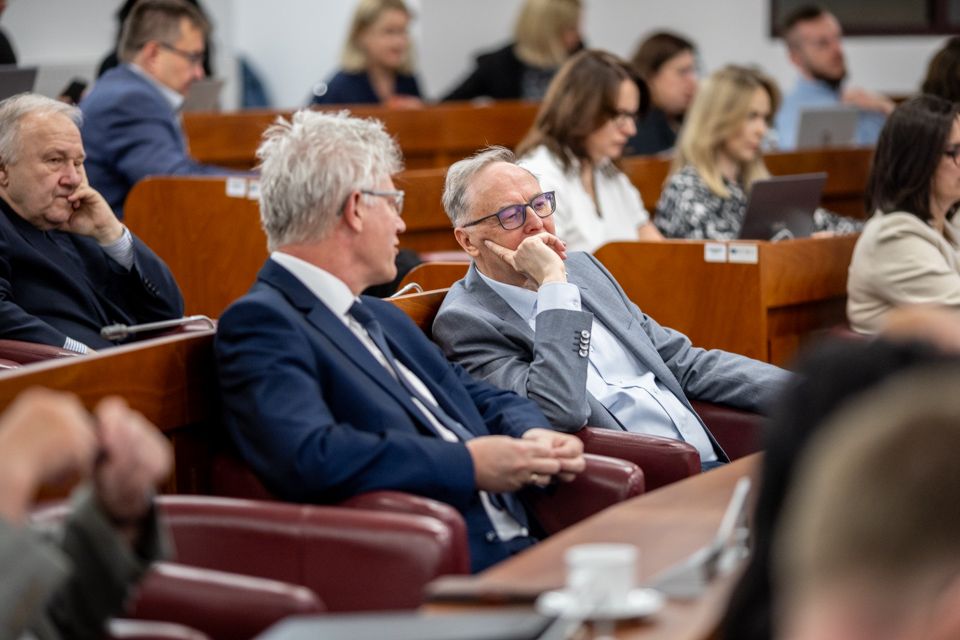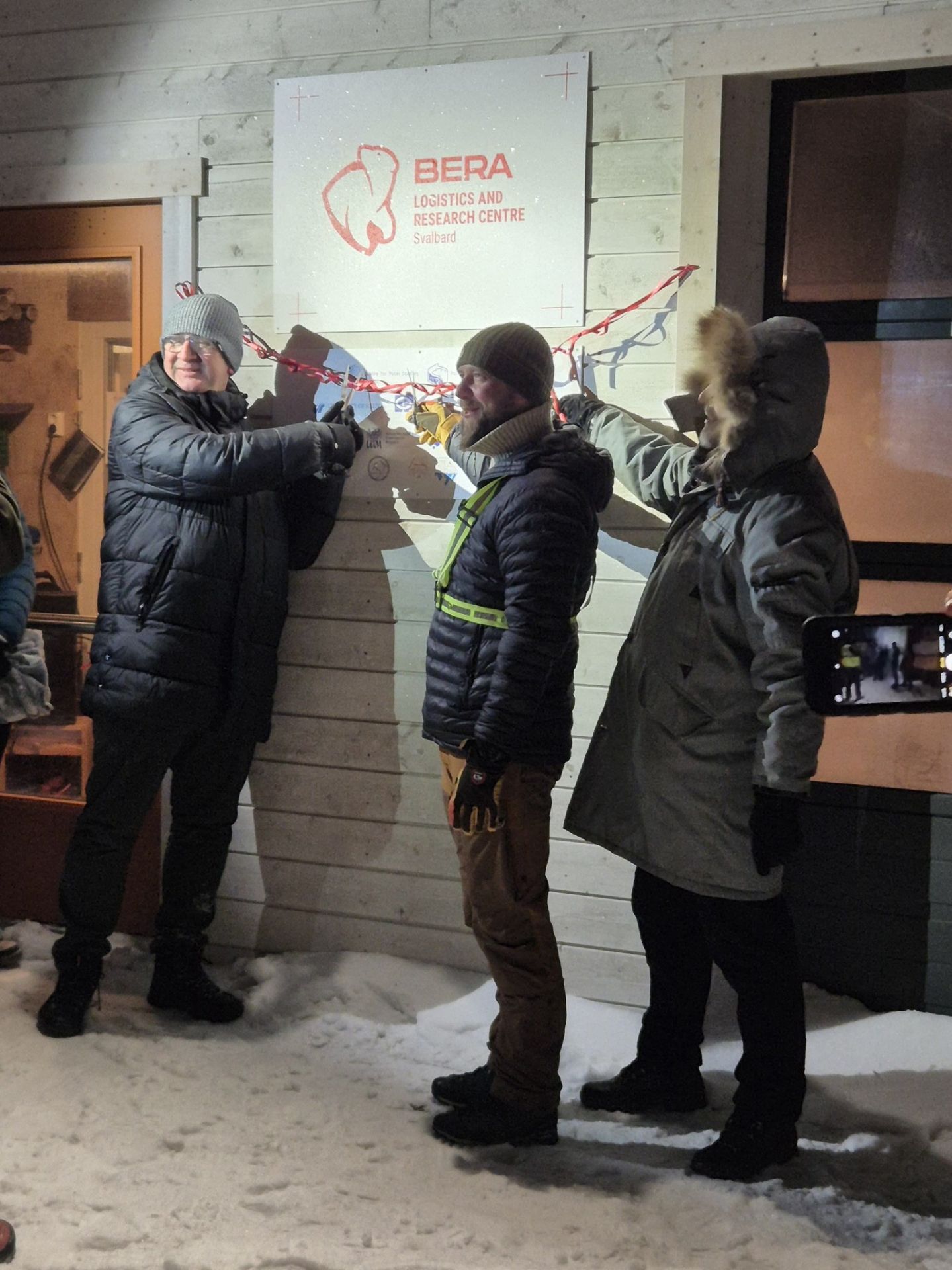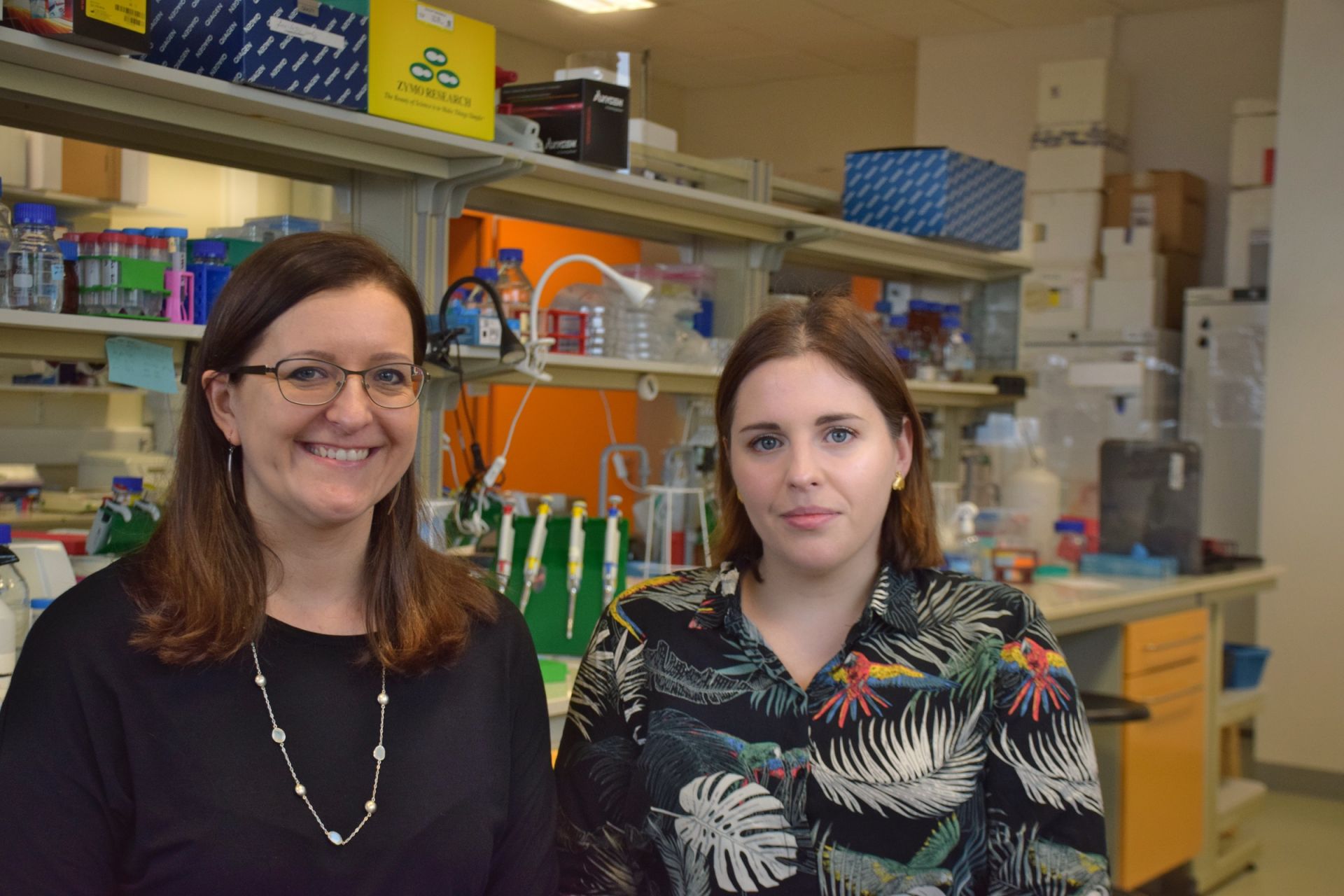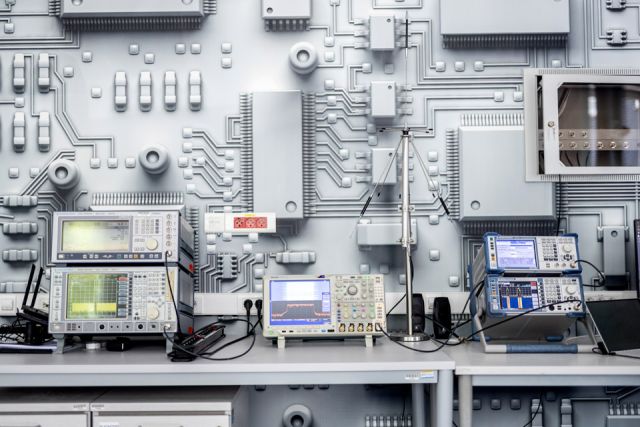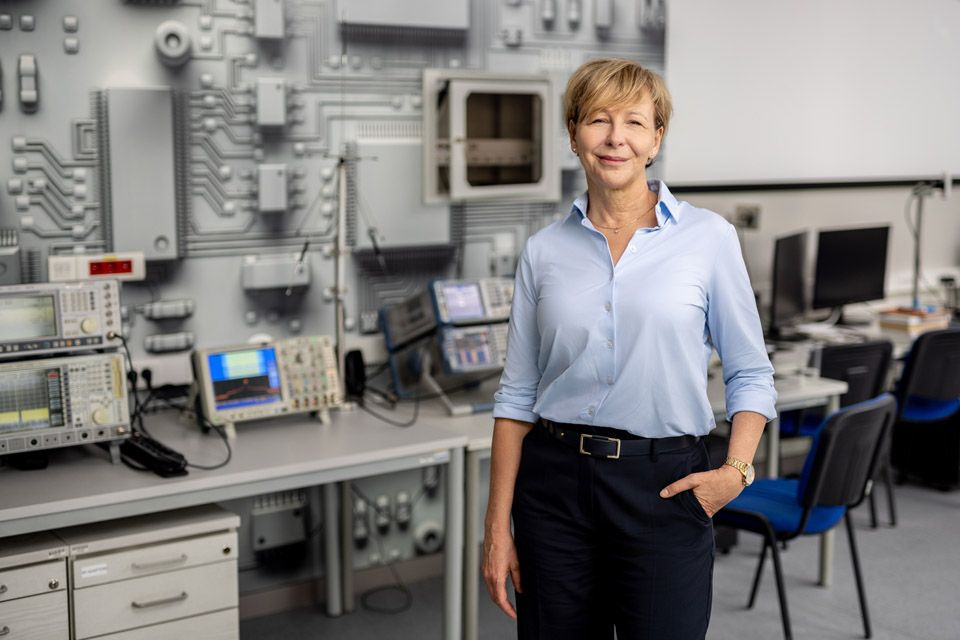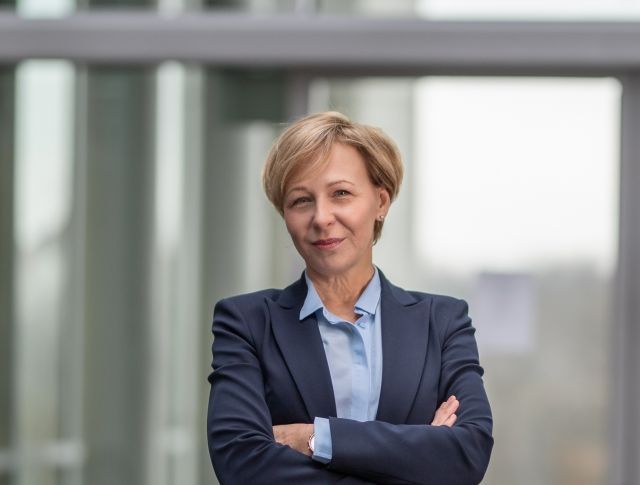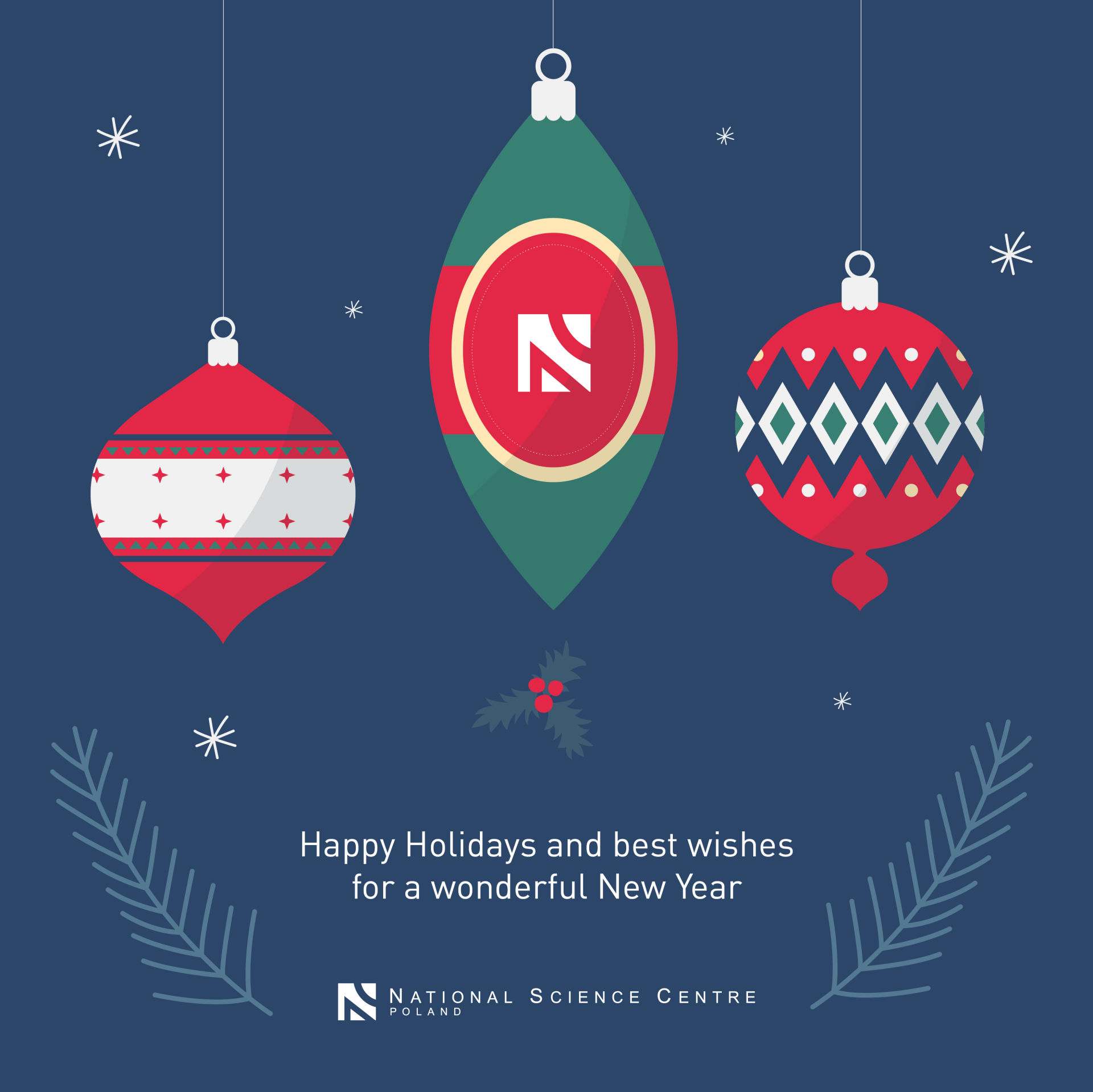“Now that I have my own projects, I am free to plan my days. I can work on the cliffs of Estonia one week and Spitsbergen sea ice the next”, says Dr Zuzanna Świrad. The winner of the L’Oréal-UNESCO For Women in Science programme sat down with Anna Korzekwa-Józefowicz to talk about her research and her work-life balance.
The L’Oréal-UNESCO For Women in Science programme supports talented women working in life science research. The Polish edition is part of a global For Women in Science initiative held in more than one hundred countries worldwide. The winners of the 24th programme, announced at the end of 2024, are Justyna Jakubska, Hanna Orlikowska-Rzeźnik, Maja Szymczak, Dr Katarzyna Klonowska, Dr Alicja Mikołajczyk, and Dr Zuzanna Świrad. All these winners have also previously won NCN grants.
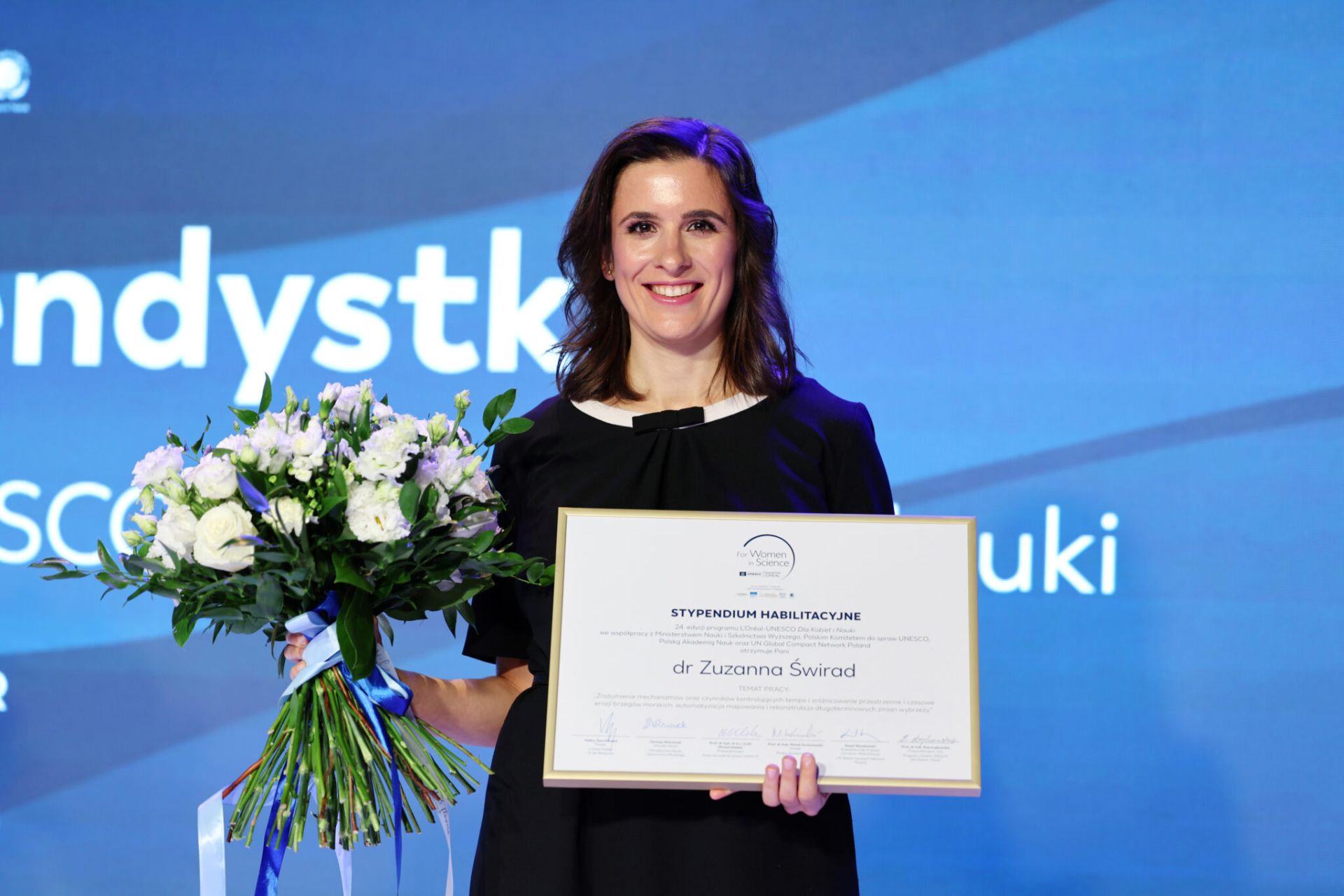 Dr Zuzanna Świrad during the gala of the 24th edition of the L’Oréal-UNESCO For Women and Science programme, photo credit. L’Oréal Polska
Zuzanna Świrad is a geomorphologist interested in the erosion of rocky coasts, using advanced technologies, such as laser scanning, photogrammetry and satellite imagery, to develop precise tools for the monitoring of changes in coastal environments. She is currently a PI in two NCN-funded projects.
Dr Zuzanna Świrad during the gala of the 24th edition of the L’Oréal-UNESCO For Women and Science programme, photo credit. L’Oréal Polska
Zuzanna Świrad is a geomorphologist interested in the erosion of rocky coasts, using advanced technologies, such as laser scanning, photogrammetry and satellite imagery, to develop precise tools for the monitoring of changes in coastal environments. She is currently a PI in two NCN-funded projects.
Świrad works at the Institute of Geophysics of the Polish Academy of Sciences, where her research is focused on the impact of disappearing sea ice on the erosion of Arctic coasts. She studied for her MSc degree at the University of Wrocław, earned her PhD from Durham University in the UK, and completed a postdoctoral placement at the University of California San Diego. She also held fellowships at the Scott Polar Research Institute at the University of Cambridge, the NASA Goddard Space Flight Center and the Arctic University of Norway.
Anna Korzekwa-Józefowicz: I’ve read somewhere that it was your job as a cook assistant that first put you on a path to a career in research. But it was a job in a rather unusual kitchen.
Dr Zuzanna Świrad: Yes, it was. When I was in my freshman year at university, a lecturer who was going to lead a polar expedition to the Polish Polar Station in Hornsund on Spitsbergen suddenly said, during a class: “If any of you want to join the kitchen staff, send me your CV by tomorrow”. So I sent my CV and, a few days later, I heard back: “Welcome on board”. This is how, at 20 years old, I got to spend two months at the Polish Polar Station.
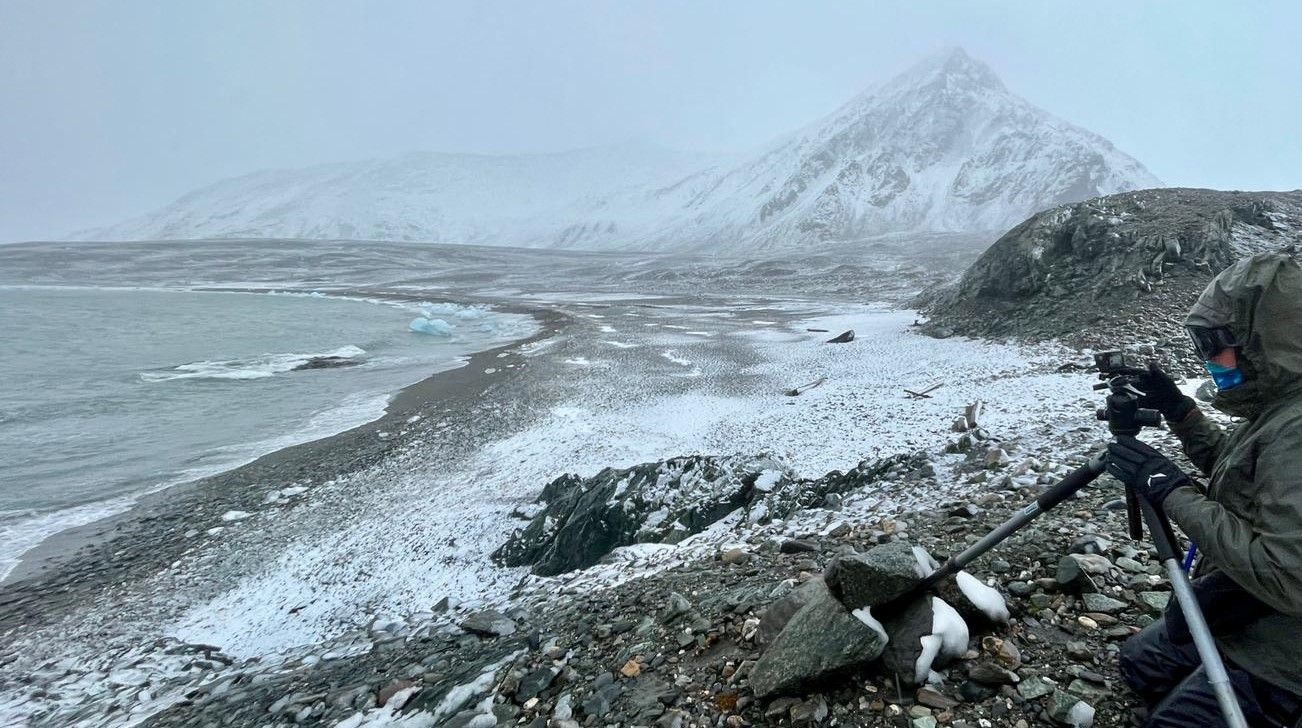 Monitoring wave runup on the beach of Isbjørnhamna near the Polish Polar Station Hornsund
What was it about this experience that first made you think of a research career that would involve traveling to such places?
Monitoring wave runup on the beach of Isbjørnhamna near the Polish Polar Station Hornsund
What was it about this experience that first made you think of a research career that would involve traveling to such places?
It was nature that captivated me above all. It took us a week to reach the station by ship, sailing out from Gdynia to Spitsbergen. At first, we could still see the shore, as we passed through the Danish straits and sailed along the Norwegian coastline, but then, we lost sight of land altogether and, suddenly, icebergs started to appear. Then we reached the fjord of Hornsund, the location of the Polish Polar station. I was awed by how close everything seemed: glaciers flowing into the sea, beautiful mountains. And the mountains were so close to the sea, too – this is something you can’t see anywhere in Poland. And then there were the polar bears, the reindeer, the polar foxes.
But there were also some obvious discomforts, I suppose.
That’s true, to begin with, the sea journey was not too comfortable, since I tend to get seasick. And living at the station for two months in such a small group of people was also quite a challenge.
I guess the weather was the hardest bit, though.
The worst thing about living on Spitsbergen is the wind. On a windy day, you basically have to stay indoors, so you end up locked in with a very small community of people. But the station as such has everything you need: you have your shower, you have your bed. The conditions are not Spartan at all. Also, because of the polar bears, when you leave the station, you always need to carry a gun and walk in groups of two, at least. So you can’t really relax, because you always need to have eyes in the back of your head to be able to spot an approaching bear.
How likely is it you might meet one?
Sometimes a month or two can go by without a sighting, but sometimes they come up close to the station and then you need to be really careful. And the area around the station is very hilly, so if the bear is behind a hill, you can accidentally end up within inches of it very quickly, and that can be really dangerous. This is what happened to me during that first expedition back in 2009. I was walking with a friend, I suddenly looked up and, just 20 metres away, I saw a bear that had just woken up from its sleep. This was a very powerful experience. I had a rifle with me, so I loaded it, and got ready to shoot, but, luckily, the bear didn’t attack us. We backed off slowly, keeping our eyes locked on the bear, and when we were at a safe distance, we practically ran to get back to the station.
A regular day in the life of a geomorphologist is probably less exciting. What does it look like?
I normally work in the office, analysing data on my computer. As far as expeditions go, last year, I went on two, each lasting three weeks, in June and August, both to Spitsbergen. And then there are also various conferences and research visits at other institutions.
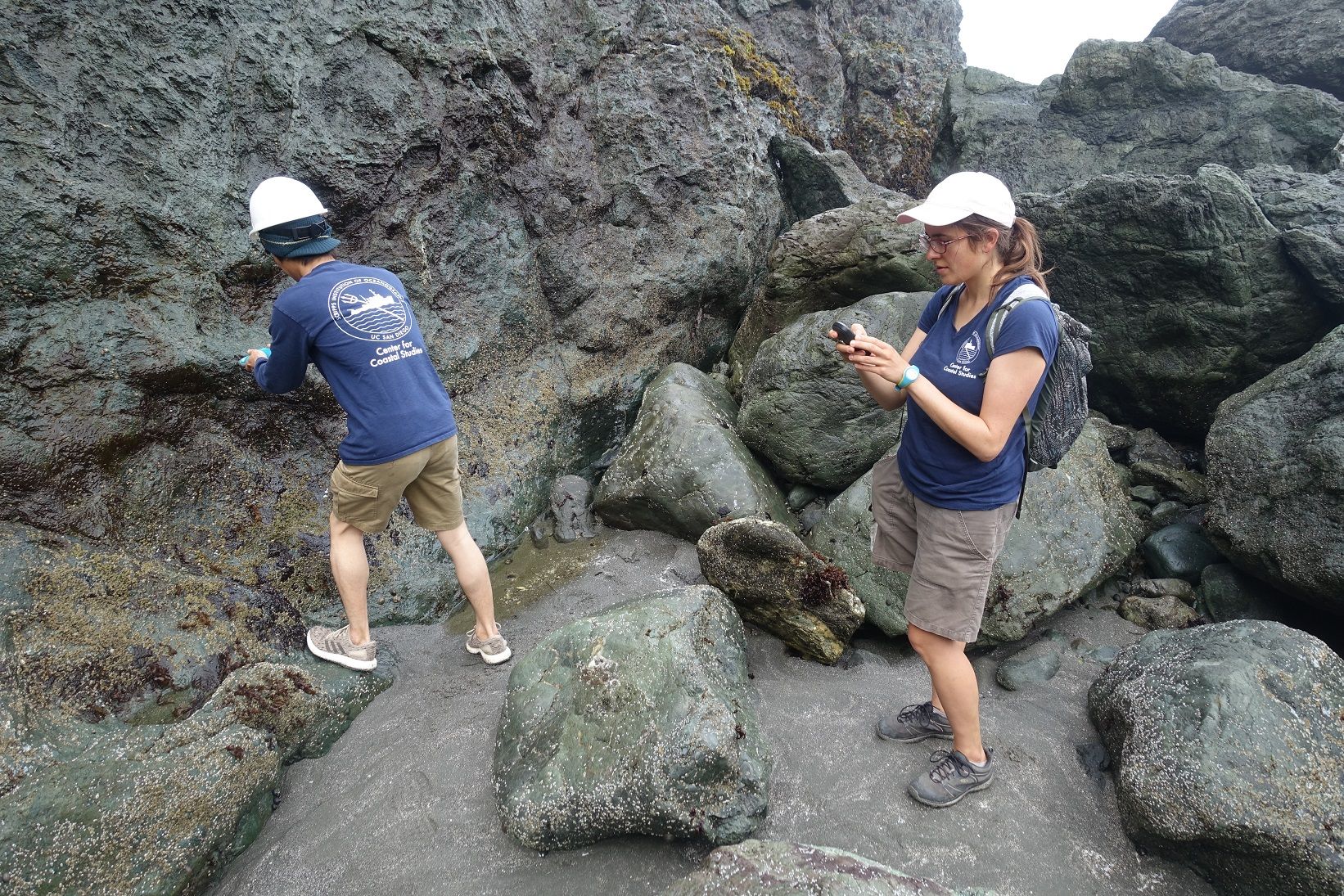 Measuring rock hardness with a Schmidt hammer, Trinidad, northern California.
Your research provides information that can help prepare coasts for threats associated with global warming. What is it?
Measuring rock hardness with a Schmidt hammer, Trinidad, northern California.
Your research provides information that can help prepare coasts for threats associated with global warming. What is it?
During my postdoctoral placement, I did research on how quickly coastal cliffs undergo erosion in different parts of the state of California. As the climate changes, sea levels rise, and storms become more frequent, the threats will also be changing. We were trying to determine which areas were at the greatest risk of erosion. If there are people living there, we should think of how to protect them. The coastal areas of California are very densely populated, so our findings could be relevant to local authorities, for instance.
This year, I started studying the cliffs of the Baltic coast, carrying over some of the methods I used in California. I am focusing on the coastline of Estonia, Latvia and Gotland, because this is where we get rocky coasts, which are at the centre of my research.
For example, in Estonia, cliff recession and rockfall cause damage to roads, and cliff tops dangerously approach residential areas. But the misconception persists that the cliffs are stable. In the wake of storms, the beaches always look different, but the cliffs seem intact. And yet, our high-precision research methods show that they are changing all the time, and disastrous rock landslides, albeit rare, do happen.
What about the Polish coast?
Polish cliffs are completely different; they are loosely consolidated, composed of post-glacial sediments. For now, I am only focusing on rocky coasts.
Are your research findings applied in practice? What could be the consequences of ignoring these coastal changes?
Local decision-makers can use our research findings to assess risks and design protective measures.
If they are ignored, we may face very serious social and economic repercussions, such as damage to buildings and infrastructure and danger to human life. Cases of sunbathers getting crushed by coastal rocks during a landslide are not unheard-of. In light of the dynamic climate change that accelerates erosion, we’d better get ready and take appropriate action.
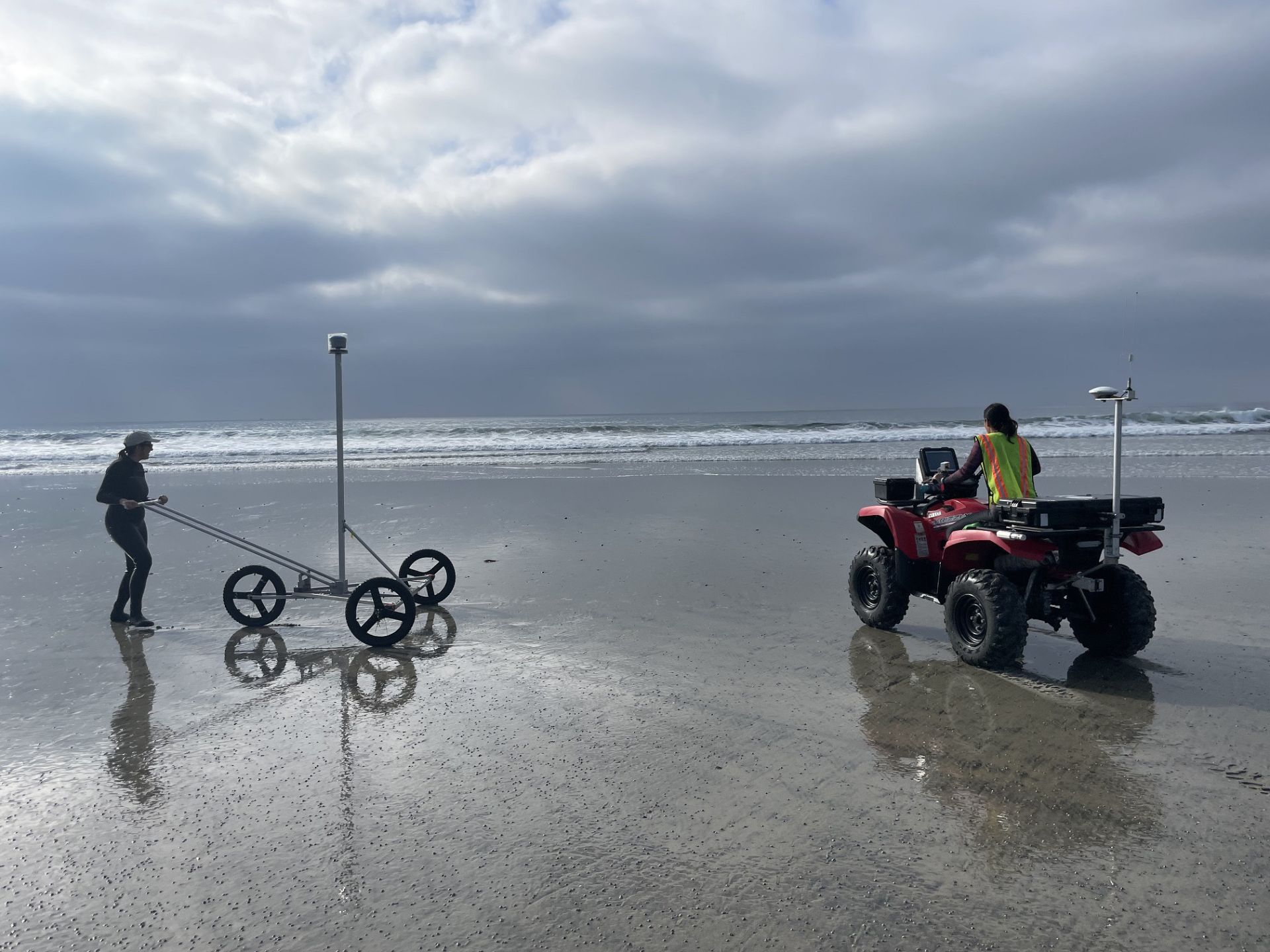 Collecting topographic data at Torrey Pines Beach, southern California.
Your work has recently been recognised by the jury of L’Oréal-UNESCO For Women in Science. Are such distinctions important for you?
Collecting topographic data at Torrey Pines Beach, southern California.
Your work has recently been recognised by the jury of L’Oréal-UNESCO For Women in Science. Are such distinctions important for you?
I am very happy that the jury rewarded my work because most awards go to scientists working in medicine or biology. So, it’s a special cause for celebration that they recognised the study of climate change and natural hazards as an important part of life sciences; this is still something unusual. I felt really honoured and moved, both when I first learned about the award and during the official awards ceremony.
According to the OPI Polish Science Database, there are more than 300 geomorphologists in Poland; two thirds of them are men. And what does it look like in coastal research specifically?
Littoral geomorphology can be divided into the study of cliffed coasts, beach coasts, salt marshes and mangrove coasts. If we talk about rocky coasts specifically, meaning mainly bedrock cliffs, there are maybe 10-15 people around the world who are doing extensive research in the field; this includes 2-3 women.
So how would you encourage other women to enter the field?
My work can be a source of immense satisfaction. There is huge pleasure in discovering new physical processes. It feels very rewarding when all the pieces of a puzzle suddenly fall into place and reveal a new, previously unknown correlation. I also appreciate the freedom that comes with my line of work. Now that I have my own projects, I am free to plan my days. I can work on the cliffs of Estonia one week and Spitsbergen sea ice the next.
Other women researchers I have talked with before have emphasised the importance of mentoring initiatives and support for younger female colleagues. This has also been your experience.
Yes, during my postdoctoral placement in the US, I took part in a mentoring programme known as MPOWIR – Mentoring Physical Oceanography Women to Increase Retention. It was a programme targeted at young female researchers working in physical oceanography at different research centres. The meetings were held once a month on Zoom and the group consisted of six young female researchers and two female mentors: one assistant professor and one associate professor. We covered a lot of important ground, including grant applications, but also discussed how to combine work and family life and cope with impostor syndrome, which, as it turned out, is quite common. We received emotional support, which was veryw important, because it is absent from our daily research work. And we got an opportunity to talk openly about our difficulties with other people in the same boat.
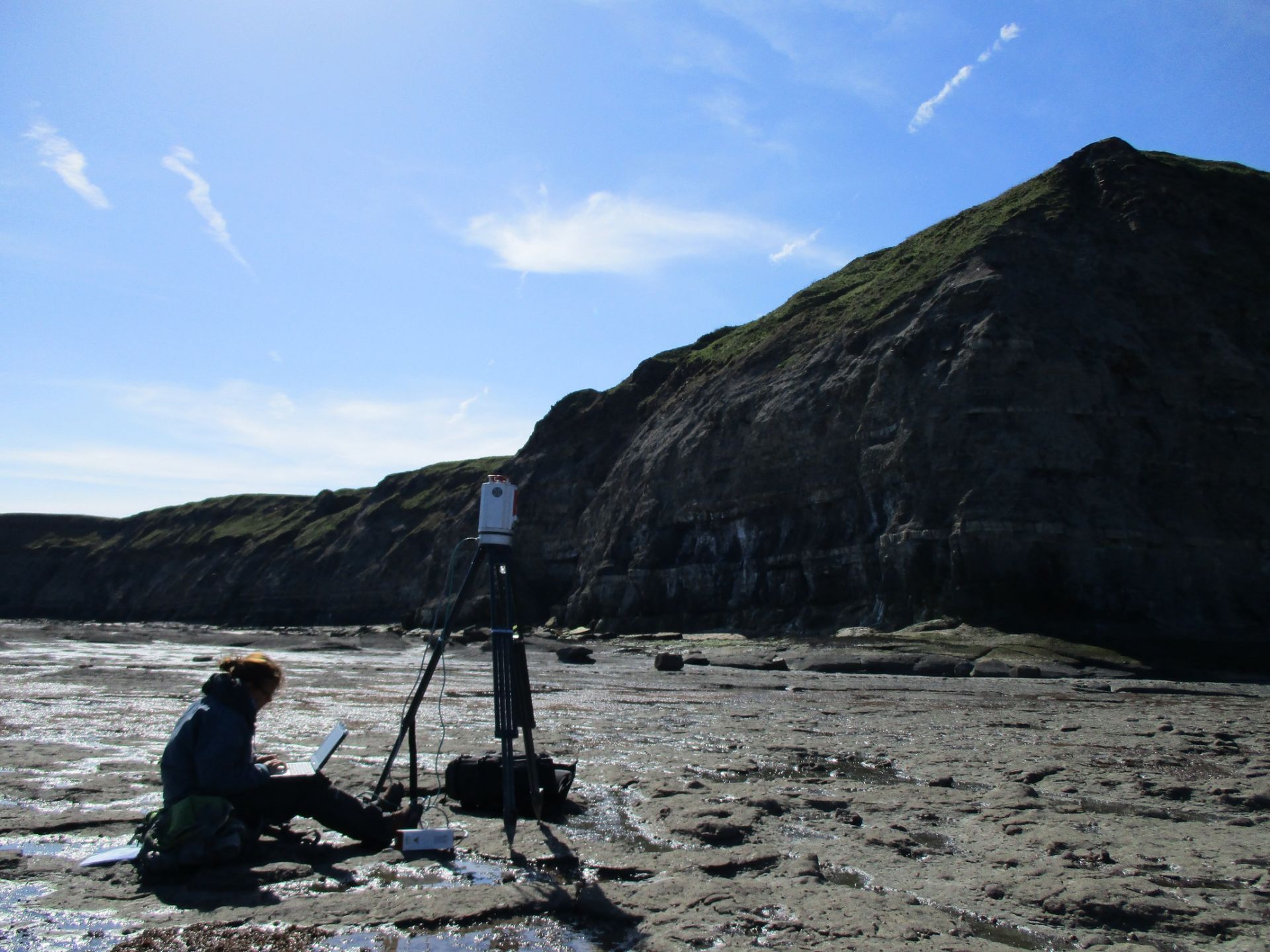 Laser scanning of the cliffs at Staithes, north-east England.
And are you able to find a balance between your private life and your career?
Laser scanning of the cliffs at Staithes, north-east England.
And are you able to find a balance between your private life and your career?
You might be surprised, but I’m managing quite well. I think I owe this to the many years I spent in England, where they are very serious about separating work and leisure time. Even before I got my PhD, during my year-long MSc internship at the University of Cambridge, I could see how strictly my supervisor would stick to his schedule. He always went home at the same time, on Fridays often left early, and never answered any e-mails before Monday. His vacations were a sacred time when he disconnected from work altogether.
My doctoral programme was a different time; it is a very challenging period that can absorb you completely, body and soul. My commitment was much greater then. But once I got my PhD, when I went on to work with my PhD advisor as a postdoctoral fellow, I returned to a better work-life balance. This experience made me realise how important it is to set boundaries.
Today, I try to stick to a regular schedule: I usually start work at 8 am and finish at 4 pm. Of course, any fieldwork, be it at a research station or on a vessel, is a completely different kettle of fish. You practically never get weekends off and your schedule can be very irregular. Fortunately, you can always claim back the extra hours you have worked: if you work on weekends, you can later take several days off. This makes it easier to balance out the periods of more intense work.
Have you come across any situations in research when women were not treated equally?
Quite recently, I had an awkward situation during a conference of the Arctic Circle Assembly in Reykjavik. My professor introduced me as the “rising star of Polish polar research”. At one point, one of the participants, a man from Iceland, an important figure in the field, asked me what I would like to achieve. I said I was interested in developing better methods to forecast natural hazards in coastal areas. His next question was: “Do you have a family?”. I got the impression he wanted to pigeonhole me right from the start.
Such questions often catch you unawares, so it is difficult to react quickly or educate the person, especially if you’re dealing with an older man from a country that is supposed to be more advanced in terms of equality than Poland.
This also reminds me of another situation from several years ago, when I attended the founding session of the Women in Coastal Geosciences and Engineering group. One of the women behind the initiative told us that when her kid was one year old, she went to a research conference and was asked “And where is your baby?”. Her answer was short and simple: “The baby has a totally capable father”. Interestingly, young fathers are never asked about their children.
So, in contrast to that conference participant, I would like to ask you about your research plans instead. What would you like to achieve in your field in the coming years?
Most of all, I would like my research to allow us to better predict coastal changes and provide direct data to decision-makers and local communities. I also want to systematise the methods of measurement for different scales of time and space, from daily observations to the reconstruction and modelling of the changes across time spans as long as a millennium, and to understand how the processes we are observing today fit into the long-term evolution of coastal areas.
Previously in our series of conversations around the issues of research and work-life balance, we published interviews with ERC grant winners, Prof. Anna Matysiak, demographer and economist, Prof. Róża Szweda, polymer chemist, and Prof. Ewa Szczurek, computer scientist, and winners of the 23rd round of the L’Oréal-UNESCO For Women in Science programme, Dr Marta Pacia and Dr Aleksandra Rutkowska.
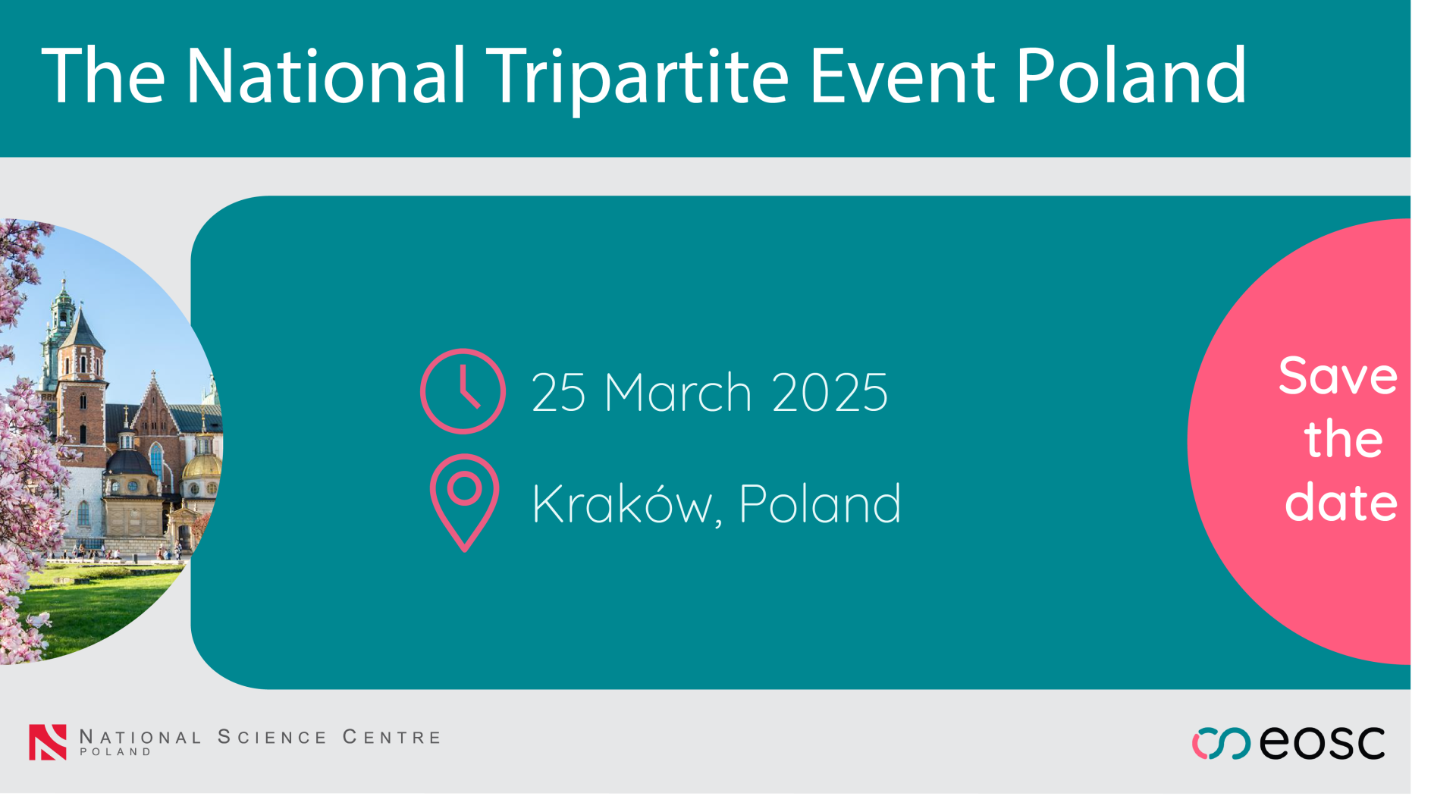 The program features presentations by representatives from the European Commission, the Polish Ministry of Science and Higher Education, the EOSC Steering Board, and the EOSC Association. Discussions will cover Poland’s resources in EOSC, the role of infrastructures in the EOSC Federation, and domain-specific aspects of research data management. Participants will have the chance to hear insights from experts and key stakeholders in the fields.
The program features presentations by representatives from the European Commission, the Polish Ministry of Science and Higher Education, the EOSC Steering Board, and the EOSC Association. Discussions will cover Poland’s resources in EOSC, the role of infrastructures in the EOSC Federation, and domain-specific aspects of research data management. Participants will have the chance to hear insights from experts and key stakeholders in the fields.
